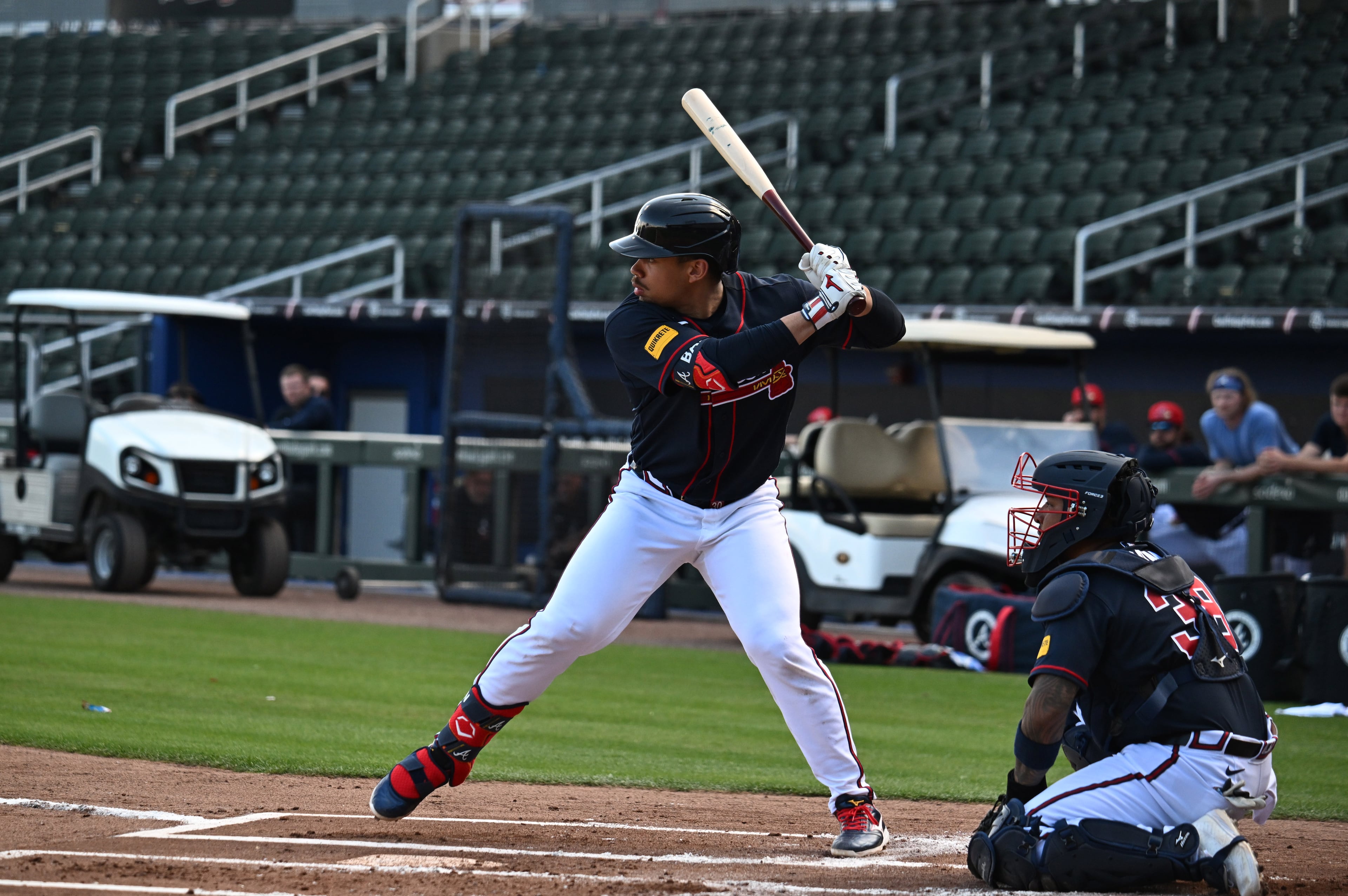Braves adjust to Dickey, a rare knuckleballer

Routine is ingrained in the culture of baseball. Managers tend to follow the proverbial “book” instinctively, to the point that deviations from it must be explained to a public that knows the drill.
The game is played in a manner that is comfortable for its participants and recognizable to its outside observers.
And then a player like Braves right-hander R.A. Dickey comes along and makes waves in those predictable waters.
Dickey is a knuckleballer, the rare pitcher who throws an unpredictable pitch that upsets the usual rhythms of baseball. When Dickey is on the mound managers, opposing batters and catchers accustomed to things going a certain way have to adjust their systems to process this foreign body.
For the Braves, who hadn’t employed a knuckleballer in a long time before Dickey signed for this season, that process is ongoing.
When Dickey showed up for spring training to throw live batting practice, Braves hitting coach Kevin Seitzer declared that some of the team’s hitters would not face Dickey.
“I don’t want any of the regular guys to do it,” Seitzer said.
When Braves catcher Kurt Suzuki struggled to catch Dickey’s signature pitch during spring training, and again during their first game as battery mates, Dickey went out of his way to commiserate with Suzuki’s plight.
“I have a lot of empathy for Kurt,” Dickey said.
When Dickey struggled early during his last start, Braves manager Brian Snitker said he had to rely totally on the pitcher to tell him how he was doing because Snitker had no idea.
“I asked him, ‘Where are we at here because I need to know,’” Snitker said.
Knuckleballers are rare. There are only two of them active in the majors: Dickey and Red Sox right-hander Steven Wright, who recently was placed on the disabled list.
Dickey jump-started his career when he committed to throwing the knuckleball in 2010 — he won the NL Cy Young Award with the Mets in 2012. His knuckleball is unique for a pitch that’s already rare because he can throw it as fast as 80 mph, much harder than usual.
Dickey was with the Braves throughout spring training and has made five starts this season. Yet Snitker still is learning how to manage Dickey because he’s never worked with a knuckleballer in more than 40 years as a manager and coach in the minors and majors.
“It’s an interesting element when you are sitting in that (manager’s) chair with that pitch,” Snitker said.
Snitker learned a lesson during Dickey’s start against the Mets on Tuesday.
Mets slugger Jay Bruce smashed a two-run homer in the first inning. Asdrubal Cabrera hit another home run to lead off the third inning. Dicky was walking hitters, too, and it looked as if he might have a short night.
Snitker inquired with Dickey, who told him he could give him more innings. And he did so, making it through six without allowing any more runs.
“It’s an interesting dynamic to watch and kind of let him go,” Snitker said. “He knows what he’s doing. It can come at any point and time and carry him through an inning.”
That’s another unique element of the knuckleball, Dickey said.
“The thing about a knuckleball, you have to live with it inning-by-inning,” he said.
Dickey said that’s why it’s important to have a manager who gives him enough room to work through problems and believes him when he says he can do it. That can’t be easy for skippers who are accustomed to pulling pitchers when they aren’t effective, but have a hard time judging pitchers who throw a pitch that is erratic by design.
Dickey said he’s already established a good rapport with Snitker. It helps that Dickey has been mostly effective through five starts, even though he said his best pitch has been lacking.
“We are five starts in, and I can honestly say I have yet to have a good knuckleball,” Dickey said. “There are points in games where I throw good ones to get me out of some jams or help me navigate innings. But consistently I have not had my good knuckleball.
“That’s encouraging that I have been able to stay in some games and eat up some innings without it. But I look forward to not having to fight it so much.”
Dickey has posted a 3.94 ERA so far with the Braves. He’s pitched into the sixth inning twice and the seventh once.
Dickey’s Braves debut was eventful because Suzuki, also new to the Braves this season, struggled to catch his knuckleballs. Three passed balls led directly to two runs that put the Braves in a 6-3 hole in what turned into a 6-4 loss.
Suzuki had one passed ball in 797 innings caught last season and three over 1,096 in 2015. But now he’s the primary catcher for Dickey, and handling the knuckleball is something different.
After that shaky first game as Dickey’s catcher, Suzuki was asked if he learned something from the experience that could help him moving forward.
“Maybe call more heaters and change-ups, less knuckleballs?” Suzuki said.
He was joking. But there is a certain expectation, if not acceptance, that Suzuki is going to miss some of those volatile pitches. (Suzuki was charged with only one passed ball in his four other games catching Dickey.)
Chances are there will be another game when Suzuki has trouble handling Dickey’s darting pitch. He said he has to keep his composure when it happens.
“I try not to show it,” he said. “It burns inside, but it is what it is. It’s a knuckleballer.”



